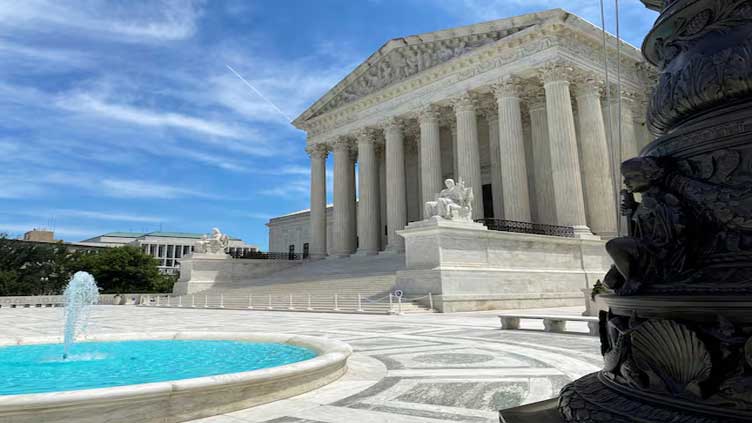Explosive cases flow to US Supreme Court from 'bold' regional court

World
Explosive cases flow to US Supreme Court from 'bold' regional court
(Reuters) - When three conservative judges sitting on a New Orleans-based U.S. appeals court declared the funding mechanism approved by Congress for the federal consumer financial watchdog agency unconstitutional, they said the nation's history of separating powers among the branches of government compelled their ruling.
It turns out these judges - all appointed by Republican former President Donald Trump - got the history wrong, the U.S. Supreme Court decided on May 16 in a 7-2 decision authored by conservative Justice Clarence Thomas, saving the Consumer Financial Protection Bureau from an existential threat.
It was one of several far-reaching decisions by the 5th U.S. Circuit Court of Appeals that the Supreme Court has reviewed during its current term, which began in October and is expected to conclude by the end of June.
The Supreme Court, which itself has a 6-3 conservative majority, has yet to issue rulings in most of this term's highest-profile cases arising from the 5th Circuit, including one on the abortion pill and two on gun rights.
"It speaks to the importance of those cases that they're getting put off towards the end," said Adam Feldman, a legal scholar who tracks court data on his Empirical SCOTUS blog. "When you have these polarizing decisions coming out of the 5th Circuit, there's probably a lot of movement on both sides of the (Supreme Court) to look at those, and so it's like a fight for those middle votes."
The Supreme Court is set to issue its next rulings on Thursday and Friday.
The 5th Circuit is one of the 13 federal appellate courts - and perhaps the most conservative of them - that are one step below the Supreme Court.
It handles appeals from federal trial courts in the Republican-led states of Louisiana, Mississippi and Texas.
Cases from the 5th Circuit have represented an increasing share of the Supreme Court's workload in recent years, according to Feldman. It heard 10 cases from the 5th Circuit this term, deciding two thus far, including the CFPB reversal. The only lower court with more cases reviewed, at 12, is the San Francisco-based 9th Circuit, which spans nine western states including California and two U.S. territories.
'A FAVORABLE FORUM'
The fact that such a panoply of cases covering hot-button issues is coming out of the 5th Circuit is the result of conservative plaintiffs choosing to bring litigation before a court they "perceive as a favorable forum," according to Adam Unikowsky, a prominent Washington lawyer who has argued frequently before the Supreme Court.
In turn, the 5th Circuit has not been shy about ruling against federal regulations and statutes, including the federal ban on gun possession by people subject to court-issued domestic violence restraining orders.
"There's a lot of bold litigation being brought in the 5th Circuit and bold decisions," Unikowsky said.
Supreme Court justices signaled reservations about 5th Circuit decisions during arguments in some major cases still to be decided, including the one involving domestic violence gun curbs.
Others involved the 5th Circuit backing restrictions on access to the abortion pill and siding with two Republican-led states that accused Democratic President Joe Biden's administration of violating constitutional free speech protections by urging social media platforms to remove certain posts that federal officials deemed misinformation.
On the other hand, the conservative justices expressed sympathy toward 5th Circuit decisions that faulted U.S. Securities and Exchange Commission in-house adjudications as a violation of the constitutional right to a jury trial and backed a Texas man who challenged a federal ban on "bump stock" devices that make semiautomatic weapons fire rapidly like machine guns.
The Supreme Court rejected several decisions by the 5th Circuit in emergency matters without hearing arguments - halting the sales of homemade "ghost gun" kits, letting U.S. Border Patrol agents remove fencing placed by Texas officials along the Mexican border, and lifting restrictions on Biden administration officials in the social media misinformation case.
THE CHIEF JUSTICE
Some legal experts said that the various reversals and rejections indicate that the Supreme Court will not simply rubber-stamp the 5th Circuit's actions, despite the conservative leanings of both courts. During its 2022-2023 term, the justices heard nine cases from the 5th Circuit, upholding that court's decisions only twice.
This dynamic may be due in part to conservative Chief Justice John Roberts, who, according to Feldman, does not want the public to view the Supreme Court as one that predictably rules in favor of conservatives.
In a May Reuters/Ipsos poll, 74% of U.S. registered Republican voters expressed a favorable view of the Supreme Court, compared to 21% of Democrats.
"I think (Roberts) is pushing to get some of these diverse coalitions (of justices), to rule narrowly. And in doing that, I don't think that that's necessarily great news for some of these aggressive 5th Circuit decisions," Feldman said.


